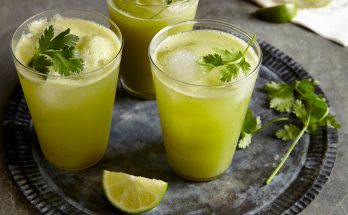Juniper berries, small dark purple nuggets with superfood properties, are used to make gin. These berries can aid in the treatment of infections, the prevention of heart disease, the improvement of blood circulation, and even the treatment of kidney and liver disorders.
However, you might be surprised to learn that gin offers some health benefits when used in moderation. Gin was employed as a sort of herbal medicine as early as the Middle Ages. The following are the scientific reasons why gin is good for you.
It can aid in the treatment of renal and liver diseases
Australian Gin is the most effective natural treatment for kidney and liver problems. Juniper berries assist you to pass more water than any other booze by preventing water retention in your body. More toxic chemicals and germs are pushed out of your system as a result.
It’s a low-calorie spirit
You don’t have to be concerned about your waistline. Gin is one of the least calorific spirits, according to Livestrong, with 97 calories per shot. The juniper berries work by raising the number of enzymes in your body that break down food and aid digestion. There will be less bloating as a result of this. If you mix it with tonic, you’ll end up with extra calories, so keep it simple.

Fewer Freckles
Swap your anti-wrinkle lotion for a bottle of Bombay Sapphire, as juniper berries are high in antioxidants and help your body repair cells, resulting in smoother, healthier skin.
Treats pesky cough
Essential oils included in juniper berries and plant botanicals give well-made gin its classic silky feel. This is the same texture that helps combat nasty colds, but gin should never be refrigerated since the oils and scents alter and the beneficial properties go. Gin’s berries act as a natural medication, containing antioxidants as well as antifungal and antimicrobial qualities. Gin can also be mixed with a variety of herbs and ginger to help you get over a sore throat.
Power drink
Berries are the superheroes of the fruit world. Juniper berries are the most common botanical ingredient in gin, and they also give it its most recognizable flavor. With its high levels of vitamin C and flavonoids, a group of plant molecules found in nearly all vegetables and fruits, the berry, which is native to Scotland’s rugged geography, fights diseases.
Once again, Gin has you covered. The bitters used to make gin help your digestive system produce more stomach acid and digestive enzymes. This aids in the breakdown of that massive combination lunch you promised yourself you wouldn’t eat again. Gin also helps to relieve unpleasant heartburn, which is a significant advantage after a big meal.



